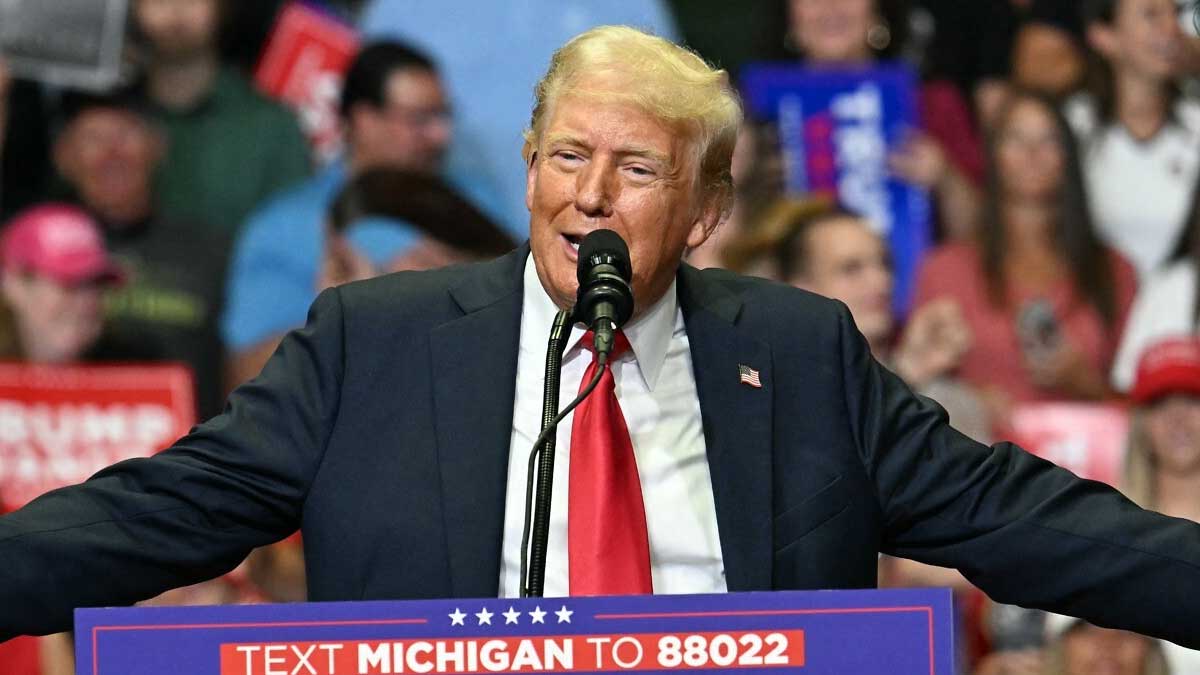- Home
- Billionaires
- Investing Newsletters
- 193CC 1000
- Article Layout 2
- Article Layout 3
- Article Layout 4
- Article Layout 5
- Article Layout 6
- Article Layout 7
- Article Layout 8
- Article Layout 9
- Article Layout 10
- Article Layout 11
- Article Layout 12
- Article Layout 13
- Article Layout 14
- Article Sidebar
- Post Format
- pages
- Archive Layouts
- Post Gallery
- Post Video Background
- Post Review
- Sponsored Post
- Leadership
- Business
- Money
- Small Business
- Innovation
- Shop
Recent Posts
Trump vs. Harris 2024: Fundraising Battle Intensifies

As the 2024 presidential election draws closer, a major fundraising showdown is unfolding between Vice President Kamala Harris and former President Donald Trump. Recent figures reveal that, up to June, Harris, alongside Joe Biden before his exit, has outpaced Trump in overall fundraising. However, Trump holds a significant edge in cash on hand. Despite this, Harris has experienced a notable surge in donations since officially joining the race.
From January 2023 through June 30, 2024, the Biden-Harris campaign committee amassed a substantial $284.1 million. In comparison, Trump’s campaign raised $217.2 million during the same period, according to the latest Federal Election Commission (FEC) filings. However, Trump ended June with a cash advantage, boasting $128.1 million in hand versus Harris’s $96 million.
When Biden withdrew from the race and endorsed Harris, his campaign committee was rebranded to support her. Although Trump has contested this rebranding with the FEC, it is unlikely to impact the election significantly. The financial landscape may shift as July concludes. Harris’s campaign has reported impressive fundraising milestones, including $200 million in her first week, whereas Trump’s campaign has been quieter about financial updates since July began.
The influence of top donors extends beyond direct contributions to campaigns. Independent political groups, including super PACs, are crucial players. These groups, which are not subject to the FEC’s $6,600-per-person donation limit, have raised significant amounts. As of June 30, the top 10 super PACs supporting Trump had collected approximately $255.9 million. Conversely, nine PACs supporting Harris had raised $164.6 million, a figure that predates her official campaign announcement and includes super and hybrid PACs that can also donate directly to her campaign.
In an intriguing twist, Harris’s initial fundraising spike after her candidacy announcement exceeded Trump’s most substantial donation boost. The Trump campaign reported a remarkable $52.8 million raised in the 24 hours following his conviction on 34 felony charges in Manhattan this May, a period that saw WinRed, the platform for GOP small donations, temporarily crash due to high traffic. This record was soon eclipsed by Harris’s impressive $81 million raised in the first 24 hours following her campaign launch.
The next comprehensive financial disclosure will be available on August 20, when campaigns submit their FEC filings for July. Until then, unofficial figures may be released, highlighting their fundraising achievements.
At the party level, Democrats are outpacing Republicans in fundraising. The Democratic National Committee (DNC) reported $285.9 million raised through June, while the Republican National Committee (RNC) collected $259.7 million. Despite Trump’s campaign leading in cash reserves, the RNC ended June with $101.6 million in reserve, surpassing the DNC’s $78 million. Reports suggest that Democrats may have bridged this cash gap, as Harris’s fundraising success includes contributions to the national party.
Regarding expenditures, the Biden-Harris campaign has historically spent funds earlier than Trump. Through June, the Biden-Harris campaign had disbursed $189.7 million, while Trump’s campaign had spent $92.1 million. This spending trend may shift with Harris’s entry into the race, which has narrowed the gap previously held by Trump. Recently, Trump’s campaign invested $12 million in advertisements targeting battleground states, marking what Axios reports as Trump’s largest ad buy since the primary season.
Billionaire donors have been active on both sides of the political spectrum. Trump’s major benefactor is billionaire heir Timothy Mellon, who has contributed a staggering $75 million. Other notable supporters include Linda McMahon, energy executive Kelcy Warren, and conservative donors Richard and Elizabeth Uihlein. Tesla founder Elon Musk has also supported Trump through the newly established America PAC, though he has refuted claims of a $45 million monthly donation.
On the Democratic side, billionaires like Michael Bloomberg and Reid Hoffman have supported Biden, and now Harris enjoys backing from several wealthy individuals, including Hoffman, Netflix co-founder Reed Hastings, former Meta COO Sheryl Sandberg, and philanthropist Melinda French Gates. A notable show of support came from over 100 venture capitalists, including Mark Cuban, Vinod Khosla, and Chris Sacca, who signed a letter endorsing Harris.
In addition to campaign support, Trump’s donors have also contributed to his personal legal expenses through his leadership PAC, Save America. Initially, small-dollar donors’ contributions were diverted to this legal fund, but this practice ceased when Trump aligned with the RNC in March. Now, Trump solicits larger donations through the Trump 47 Joint Fundraising Committee, which supports his campaign and legal fund before directing excess funds to the RNC and state parties.
Harris’s entry into the presidential race on July 21, following Biden’s withdrawal and endorsement, has reinvigorated the campaign. Her substantial fundraising haul reflects renewed enthusiasm among left-leaning voters, contrasting with Trump’s previously dominant fundraising position. As the campaign progresses, these financial dynamics will play a crucial role in shaping the electoral landscape, with the forthcoming August FEC filings offering deeper insights into the evolving financial battle between the candidates.
Recent Posts
Categories
- 193cc Digital Assets2
- 5G1
- Aerospace & Defense46
- AI37
- Arts3
- Banking & Insurance11
- Big Data3
- Billionaires449
- Boats & Planes1
- Business328
- Careers13
- Cars & Bikes76
- CEO Network1
- CFO Network17
- CHRO Network1
- CIO Network1
- Cloud10
- CMO Network18
- Commercial Real Estate7
- Consultant1
- Consumer Tech180
- CxO1
- Cybersecurity68
- Dining1
- Diversity, Equity & Inclusion4
- Education7
- Energy8
- Enterprise Tech29
- Events11
- Fintech1
- Food & Drink2
- Franchises1
- Freelance1
- Future Of Work2
- Games141
- GIG1
- Healthcare78
- Hollywood & Entertainment186
- Houses1
- Innovation42
- Investing2
- Investing Newsletters4
- Leadership65
- Lifestyle11
- Manufacturing1
- Markets20
- Media193
- Mobile phone1
- Money13
- Personal Finance2
- Policy567
- Real Estate1
- Research6
- Retail1
- Retirement1
- Small Business1
- SportsMoney33
- Style & Beauty1
- Success Income1
- Taxes2
- Travel10
- Uncategorized8
- Vices1
- Watches & Jewelry2
- world's billionaires418
Related Articles
Trump Moves $4B Stake in Truth Social Parent, Stock Drops 6%
Donald Trump recently transferred his 57% stake in Trump Media & Technology...
By 193cc Agency CouncilDecember 20, 2024House Rejects Trump-Backed Funding Bill, Shutdown Looms
The U.S. House of Representatives rejected a new government funding bill on...
By 193cc Agency CouncilDecember 20, 2024Trump Named Time’s Person of the Year for Second Time
On Thursday, Time magazine honored Donald Trump as its “Person of the...
By 193cc Agency CouncilDecember 12, 2024Meta Donates $1 Million to Trump’s Inaugural Fund
Meta, the parent company of Facebook and Instagram, has confirmed a $1...
By 193cc Agency CouncilDecember 12, 2024















Leave a comment